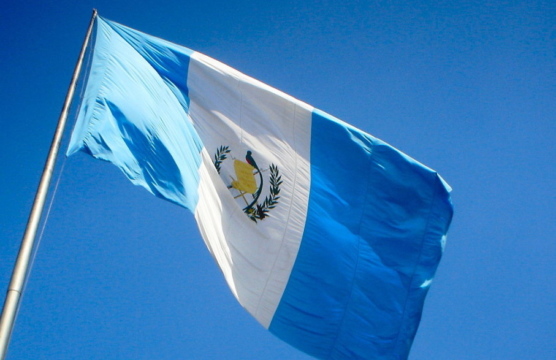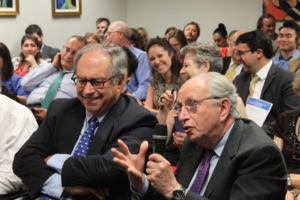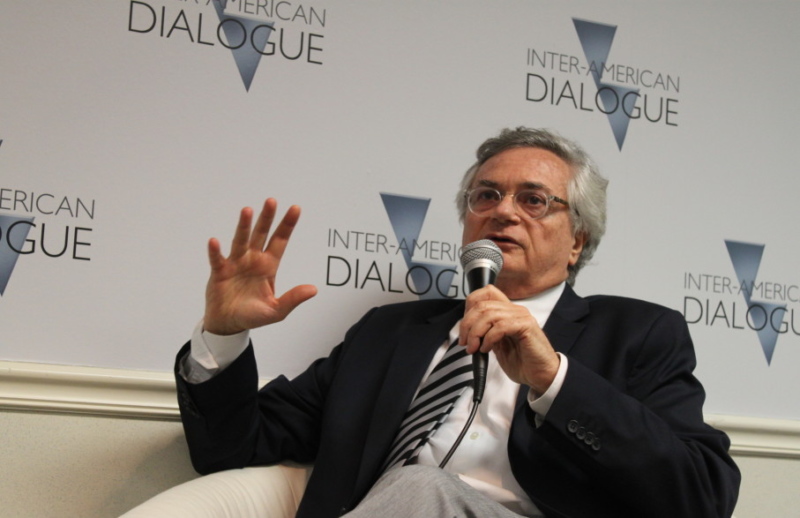
Are Countries Making Progress in Fighting Corruption?
Which countries in the region are making strides in fighting corruption, and which are falling short?
Chile—long a paragon of institutional strength, political accountability, and good governance—has fallen on difficult times. Corruption scandals, protests, shady campaign finance, and patrimonialism are not historically surprising elsewhere in Latin America. But what is surprising is that these corrosive challenges have emerged with force in Chile; that the ugly head of corruption has reared up even in the region’s most accountable political system.
As a result, the Penta and Caval corruption scandals that have rocked both the governing party of Michelle Bachelet and the opposition UDI party are of enormous importance. What they will mean for both Chile and for the region as a whole is not entirely clear, but in any case they are undoubtedly significant. The true question is no longer if and why Chile is exceptional, but rather, in the words of Moisés Naím, “how this model country has become a normal country.”
In this wide-ranging discussion between two of the region’s leading political thinkers, Moisés Naím and Sergio Bitar attempted to tackle the broader and longer-term implications of this tumultuous moment in Chilean politics. The importance of these scandals is hard to overstate. The Penta case, in which prominent bankers and businessmen were revealed to be illegally funneling cash into the political campaigns of right-wing UDI party members, has seemed to indict the electoral and political system as a whole. At the same time the Caval scandal, in which the president’s son, Sebastián Dávalos, was accused of misusing his influence in a loan-for-land deal, shattered Bachelet’s previously honest image and high approval ratings. This scandal in particular has led to considerable political upheaval, including a dramatic cabinet shakeup. The biggest problem however, according to Bitar, is that the scandals are “concentrated in the inter-link between politics and economics and banks,” that they represent the political and economic elite and their separation from the rest of society.
There is, of course a caveat: the corruption was, as Naím described, “Chilean size”—only $5 million dollars. In many other countries these scandals would not have had a considerable impact; in absolute terms they are relatively small and relatively benign, especially compared to the current situations in Brazil, Argentina, Guatemala, and others. Although it is perceived as such, the Penta case is not systemic, and was relatively isolated. Moreover, in the Caval case, Dávalos acted within the scope of the law; nothing about the scandal was illegal, only unethical. But regardless, the cases are still earthshaking in Chile. What makes them important is not the absolute scale, but the relative scale. According to Naím, you cannot compare Chile to its neighbors, “you have to compare Chile to Chile.”
At the core, these scandals are the product of a disconnect in which civil society has grown rapidly since democratization but institutions have failed to keep pace. In other words, the Chilean political sector has simply not made the progress necessary. They have also been magnified by a slowing economy, lower copper prices, a need for fiscal tightening, and a sense of political dissatisfaction more generally.
While both Naím and Bitar recognized that this is a trying moment for the country, Bitar in particular was also “absolutely convinced that Chile has the capacity to come out of this.” In his words, “political indignation is capital for a country;” scandals can help drive progress in the future. To him, the Bachelet government remains united, has a clear sense of the reforms needed, and is moving in the right direction to not only recover from these scandals but also to ensure Chile emerges stronger and more effective politically.
However, Naím pushed back on this assumption, asking if there is a tension between reform and an impulse to start over. He wondered if the government could avoid the popular sentiment of “que se vayan todos,” throw them all out. In particular, he was concerned about the possibility populism or another anti-political force emerging. Bitar responded that this underlined the need for public campaign financing and other electoral reforms, to both prevent protection and to strengthen existing political parties and democratic institutions.
[caption id="attachment_16078" align="alignright" width="300"] Ambassador Juan Gabriel Valdés of Chile and Dialogue President Emeritus Peter Hakim[/caption]
Ambassador Juan Gabriel Valdés of Chile and Dialogue President Emeritus Peter Hakim[/caption]After discussing Chile in particular, the conversation expanded to more general topics around Chile—including education, the tax reform, student protests, and the access-to-the-sea territorial dispute with Bolivia—and a regional and global perspective. In particular, Naím and Bitar discussed the regional wave of corruption scandals and the deteriorating situation in Venezuela, in part through the lens of the inefficacy of the Organization of American States. They argued whether or not the Secretary General could be held responsible for a lack of leadership, and whether or not anything could be done in a regional capacity to promote democracy and prevent corruption. They also speculated whether or not other countries in the region would begin to take a more active position in defense of democracy in Venezuela.
Perhaps what this event most revealed was that the corruption scandals in Chile, while different in scale, should not be taken as separate from the other problems of governance and democracy in the region. The challenges are different expressions of the same fundamental problem: accountability, transparency, and political institutions must be improved if Latin America is to move forward politically and economically.
Which countries in the region are making strides in fighting corruption, and which are falling short?
Organized criminal groups pose an increasing risk to democracy and the rule of law in El Salvador.
Over the past weeks, public discontent with the administration of President Dilma Rousseff has continued to rise.
 By Ben Raderstorf / Inter-American Dialogue
By Ben Raderstorf / Inter-American Dialogue
 Video
Video